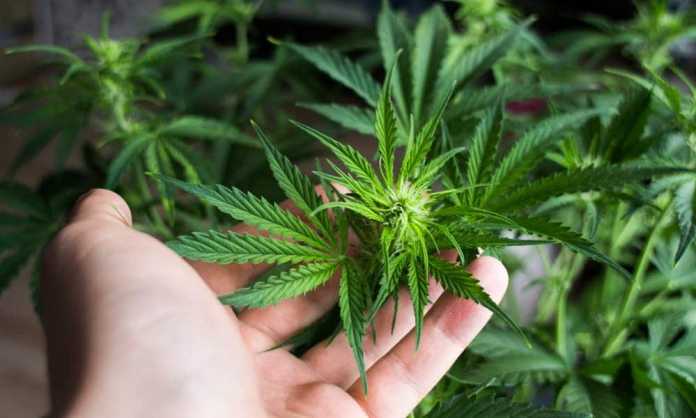It is undeniable that marijuana legalization is one of the most widely debated arguments, for and against, among voting-age citizens, not only throughout the United States but abroad. In a recent study, Americans for the first time were overwhelmingly in support of legalizing marijuana to some extent, with more than half of the population polled nodding yes to the question.
While the majority of those in agreement with marijuana legalization are younger individuals, between the ages of 18 and 29, a shift in older generations was noticeable in the most recent survey data. While the reasons for voting yes for legalization of the drug vary widely from person to person, there are some commonalities across the board. Below are the ten reasons support for marijuana legalization will continue to grow in the years to come.
It’s Safer than Tobacco and Alcohol
Both tobacco and alcohol are legalized in all 50 states, as well as around the world, but there are more than 500,000 deaths each year attributed to the two drugs combined. The substances are also known to contribute to several illnesses that drastically drive up the cost of healthcare, law enforcement initiatives, and lost productivity on the job. Conversely, there are no reports of fatal overdoses of marijuana nor are there severe medical conditions linked to its use, which, in part, is driving its growing levels of support.
Prohibition is Expensive
Many are recognizing the high cost of marijuana prohibition, in the form of mass incarceration and the subsequent prosecution. Some estimates state that more than 25 million people have faced marijuana drug charges, with more than $1 trillion in court costs to go hand in hand. However, in the states that have already legalized marijuana use, the number of arrests and expenses associated with prosecuting offenders has decreased significantly.
Promotion of Illegal Activities
Because marijuana use, for recreational or medical needs, is illegal in most of the country, gangs, cartels, and terrorist organizations are at the helm of the business. While legalizing the drug won’t likely entirely eliminate the activities of these criminal groups, it has shown promise in reducing their prevalence in the states that have taken steps toward legalization.
Reducing Harm to Minority Populations
The criminal justice system has been seen as the culprit in institutionalizing racism on a broad scale, and marijuana-related crimes make up the majority of this large issue. Recent research shows that minority groups are four times more likely to be arrested and charged with marijuana crimes, despite the reality that the use rates are similar across all ethnic groups. Legalizing the drug may prove beneficial to minority populations in the long run.
Improving Regulation among Sales
The illegal sale of marijuana comes with no regulation, especially on the part of the person selling the drug. This leads to a higher rate of adverse incidents involving younger children, given there is no requirement for a dealer to check an ID or verify any other identifying information about a buyer. Additionally, drugs that are not regulated by some governing body may be mixed with other substances that can ultimately result in a fatality. Legalizing marijuana would reduce these devastating occurrences.
Benefits to Sick Individuals
Much of the support for marijuana legalization is based on the research highlighting the benefits terminally ill patients receive from rationed use of the drug. Individuals with cancer, Parkinson’s disease, Huntington’s disease, HIV/AIDS, and other chronic conditions have reported substantial improvement in symptoms when using marijuana, as have those with less severe ailments, including menstrual cramps, migraines, and anxiety.
Replacing Addictive Drugs
Piggybacking on the advantages marijuana brings to sick individuals, its legalization also holds the potential to replace highly addictive pharmaceuticals that are currently on the market. Health and Human Services reports that more than 100 people die each day from opioid-related overdoses, and over 2 million have an opioid use disorder. Legal substances from pharmaceutical companies are only adding to the growing issue, but legalizing marijuana has the potential to reduce these numbers significantly.
Increasing Tax Revenues
In the handful of states already taking the step to legalize marijuana sales, tax revenues are a heavy-hitting promise. States have reported more than $200 million in combined tax revenue from marijuana sales, while also saving money on the costly outcomes of prohibition mentioned above. States that allow marijuana sales also have requirements for dispensaries to secure surety bonds, helping to protect the payment of tax liabilities from revenue along the way.
Business Opportunities
Support for the legalization of marijuana is also due to the increased business opportunities made available from the drug’s sale. Not only are dispensaries an entrepreneurial idea, but growing and processing are as well. States that have legalized the use of the drug have empowered many hundreds to thousands of individuals to create their own business which ultimately leads to increased opportunities for job market growth over time.
Reducing Prevalence of Common Conditions
Finally, growing support of legalizing marijuana is linked to recent research regarding common conditions, including diabetes and obesity. Several studies show that adults who use marijuana have smaller waist sizes, better-regulated blood sugar levels, and higher counts of good cholesterol. Each of these health factors makes a difference in the development of widely prevalent health conditions.

Many states are continually working toward joining the ranks of those that offer legal marijuana sales. However, there are political and societal obstacles that often stand in the way. As support gains momentum across the United States based on the reasons above, marijuana legalization may be on the horizon for most states in the near future.
Author: Eric Weisbrot is the Chief Marketing Officer of JW Surety Bonds. With years of experience in the surety industry under several different roles within the company, he is also a contributing author to the surety bond blog.
All content herein is owned by author exclusively. Expressed opinions are NOT necessarily the views of VNR, authors, affiliates, advertisers, sponsors, partners, technicians, or VT Network. Some content may be satirical in nature.
All images within are full responsibility of the author and NOT VNR.
Read Full Policy Notice - Comment Policy





























